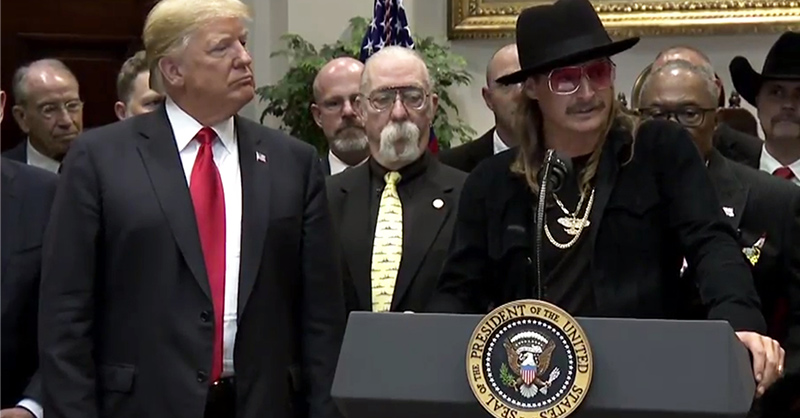
The news comes after the bill was unanimously voted through both the US House of Representatives and the Senate.
The Music Modernization Act reforms mechanical licensing through the creation of a Mechanical Licensing Collective (MLC), paid for by digital companies, which will offer digital streaming services a blanket license in return for improved payments to songwriters and copyright owners.
The bill also improves the rate standard by which songwriters’ mechanical rates are considered and makes improvements to the ASCAP and BMI consent decrees. Additionally, the bill ensures pre-1972 legacy artists are paid for their work when played on satellite and digital radio and codifies the process through which producers and engineers are paid.
NMPA President & CEO David Israelite said: “The Music Modernization Act is finally the law of the land. We are incredibly grateful for the Members of Congress who passed the MMA and the President for signing it.
“Songwriters have for too long labored without seeing fair rates and receiving all that they deserve, and for the first time in history, the music industry has partnered with the tech industry to fix these systemic problems.
“As we embark on supporting and helping build the critical structures within the MMA, we are humbled by the extraordinary progress propelled by compromise and the unprecedented political involvement of music creators. Today is about their future and this bill stands as a great statement on what can be done when we work together.”
Said John Josephson, Chairman and CEO of SESAC: “Today, President Trump signed the bi-partisan Hatch-Goodlatte Music Modernization Act (The MMA), which will finally bring music copyright laws into the digital age. We applaud everyone’s hard work and tireless efforts on this legislation, especially the Senators who worked diligently to get the bill passed then adopted by the House.
“We’re grateful for our committed songwriting and publishing community whose focus and passion have strengthened our industry for generations to come.”
Spotify’s General Counsel and VP Business & Legal Affairs, Horacio Gutierrez, said: “One of our core missions at Spotify is to enable a million artists to make a good living from what they love: creating and performing music.
“The Music Modernization Act is a huge step towards making that a reality, modernizing the outdated licensing system to suit the digital world we live in. The MMA will benefit the music community and create a more transparent and streamlined approach to music licensing and payment for artists.”
SoundExchange President and CEO Michael Huppe said: “With today’s signing of the Music Modernization Act, we mark a historic accomplishment. But more importantly, we mark what it means. For creators, it means getting paid more fairly. For those who recorded music before 1972, it means assurance you’ll get paid for your work. For songwriters, publishers and producers it means making the digital economy work for you.
“SoundExchange’s 170,000-member community was a driving force in getting the bill from the halls of Congress to the White House. When the music industry speaks with one voice, Congress listens. I urge you to stay active because there is much more work to be done before we can truly say all music creators are treated fairly.”
Elizabeth Matthews, ASCAP Chief Executive Officer, said: “Thanks to the unrelenting efforts of our ASCAP music creator and publisher members, industry partners and champions in Congress, a more sustainable future for songwriters is finally within reach. The MMA’s unanimous passage in the House and Senate proves that the power of music is a great unifier. ASCAP is gratified to have stood alongside creators, music publishers, and many more to make this dream a reality.”
Paul Williams, songwriter, ASCAP Chairman of the Board and President, commented: “A young songwriter once wrote, ‘You give a little love and it all comes back to you; You’re gonna be remembered for the things that you say and do.’ Decades later, this could not be more true.
“Songwriters across this country now and in the future will remember those who fought so hard for the Music Modernization Act—both in Congress and across the music industry. On behalf of the music community, we are so thankful for the love and will return the favor with music for generations to come.”



